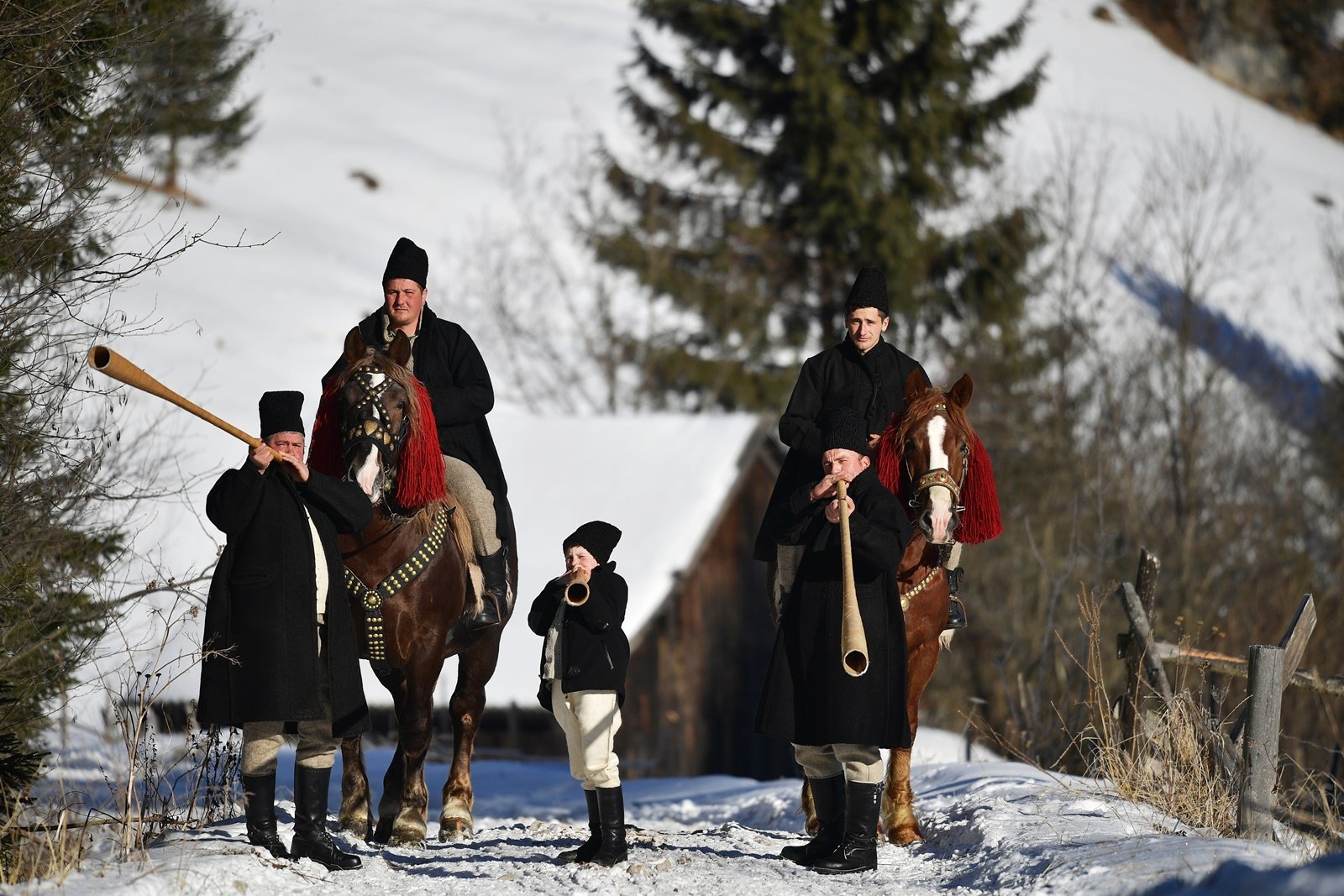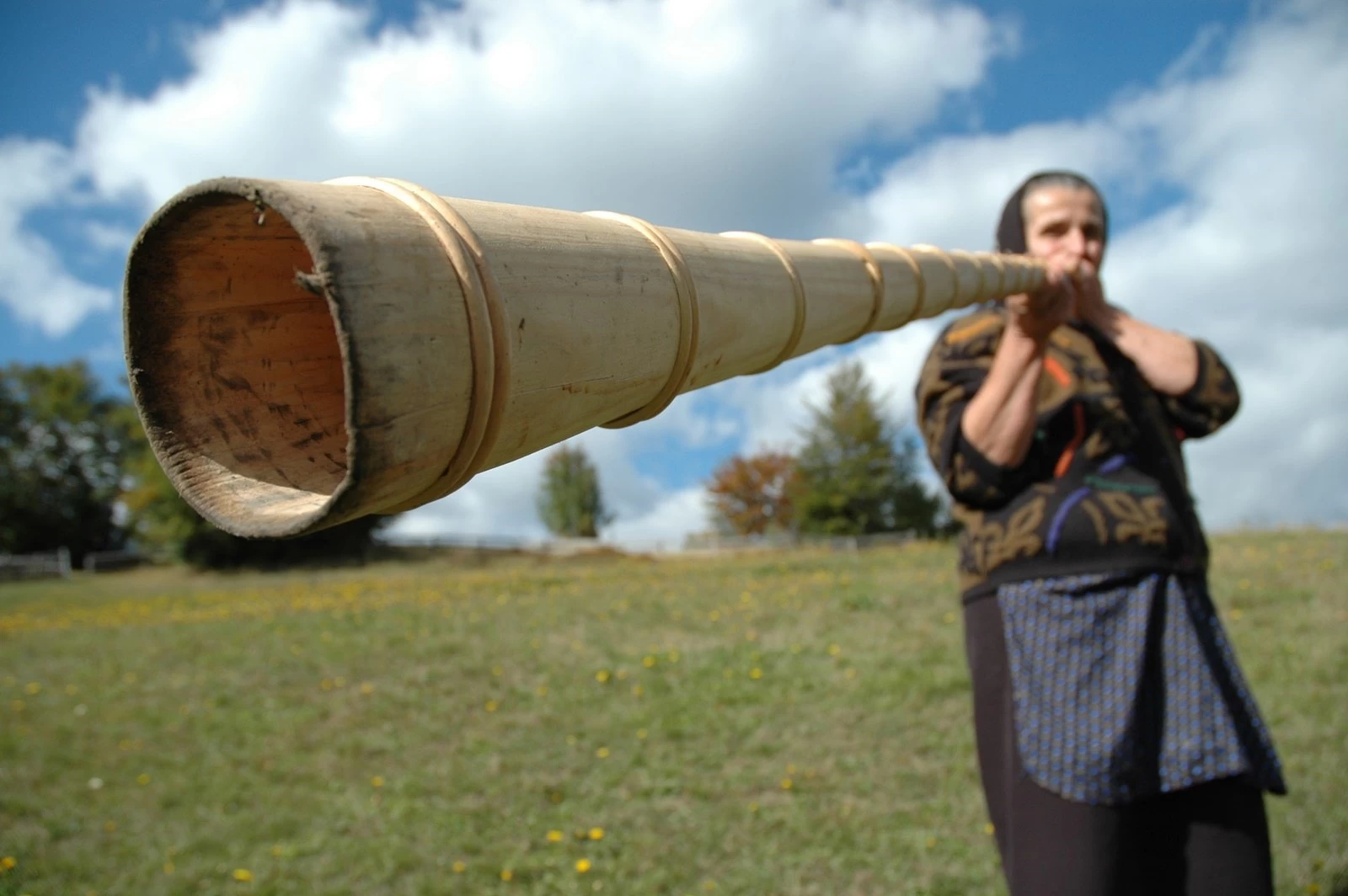Let's discover together the most beautiful customs and traditions in Apuseni.
The Apuseni Mountains are very rich in folklore and culture. Here, you will find an archaic way of life, long disappeared from the rest of Europe.
People still practice crafts that are centuries old, and it's not surprising if you see them still wearing traditional clothes.
Therefore, we present to you a unique vacation destination, where you will have unforgettable experiences.
Customs and Traditions in Apuseni
Depending on the village you visit, you will discover different customs.
One of these takes place in Geoagiu de Sus, on Palm Sunday. On this holy day, Orthodox believers make their way to the two churches in the village to attend the liturgy.
Then they go to the cemetery with the priest, who blesses the deceased. The locals decorate the graves, light candles, and offer sweets to the well-behaved children sitting in a row along the paths.
This tradition handed down from generation to generation awakens unique memories in the hearts of the elderly, who remember that decades ago, in their childhood, they eagerly awaited this day.
Another activity of the people in Apuseni is making traditional hemp clothes. This has been passed down from generation to generation and is now part of the folklore of the Apuseni Mountains.
The Apuseni Mountains have a tradition of hundreds of years of organizing country fairs. The small, local fairs were held every Thursday of the week. The large fairs, called "bulciuri" or "balciuri," were organized according to the agricultural calendar.
The fairs were not only important from a commercial point of view, but also from an ethnographic and social point of view. In addition to the exchange of goods, the fairs made it possible for young people from distant areas to meet and marry, thus avoiding the crossing of close relatives.
The most famous fairs organized in Apuseni are:
- The Brides' Fair (the most famous being the girls' fair on Mount Gaina);
- The Harvest Fair (summer);
- The Samedru Fair (autumn);
- The Frogs (winter fair in Tara Beiusului).
Some of the most beautiful customs and traditions in Apuseni take place during Christmas. We mention here the carol ("coolindul") of the young men from the Marisel area.
In the courtyard of the church, on Christmas Eve, two groups of carolers are formed. Each of these is led by a leader, called a "staroste." The two groups carol all the households in Marisel, one of the most isolated villages in Apuseni.
The carolers, musicians and drummers are not allowed to rest until the last household receives the news of Christmas. The tradition of the young men from Apuseni has been included in the UNESCO Heritage.

The traditional clothing of Apuseni preserves the unity of Romanian traditional clothing, in terms of the pieces that make it up: shirt, skirt, apron, breastplate, belt and shawl. The characteristic element of this is the large and impressive "ciupag" with geometric motifs, worked under the collar and left visible by the wide decollete breastplates.
There are many other customs and traditions in Apuseni that have only been preserved locally. You will discover them with the help of your hosts.
Accommodation in Apuseni
To have an authentic experience, we provide you with the most spectacular accommodations in Apuseni. From traditional guesthouses and houses to cabins or unusual places, such as glamping or treehouses, you can quickly and commission-free book all of them through our platform.
The hosts of Travlocals enjoy an extraordinary reputation, thanks to the hospitality and quality of services they offer. Everything is checked in advance to ensure that they meet the highest standards.












